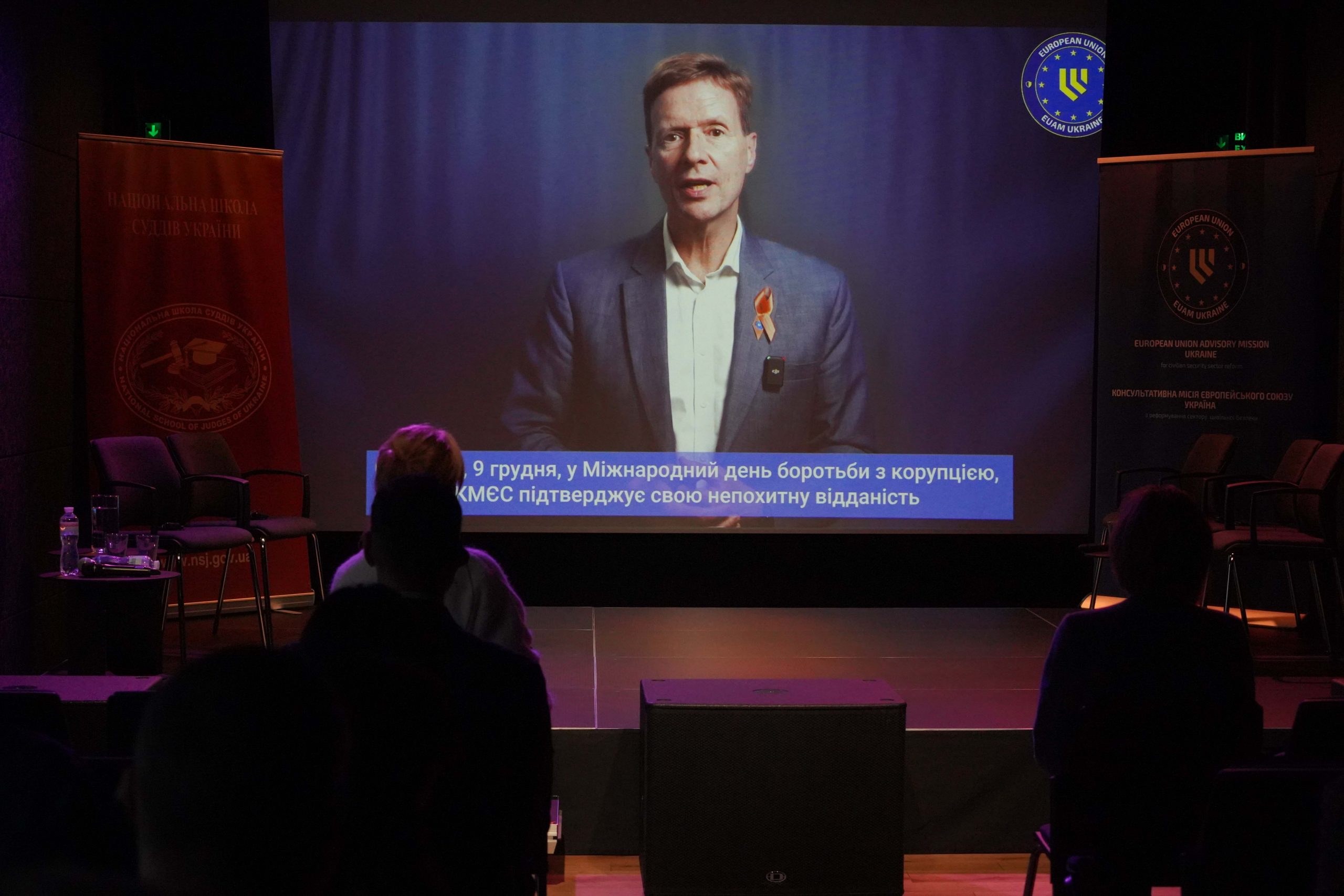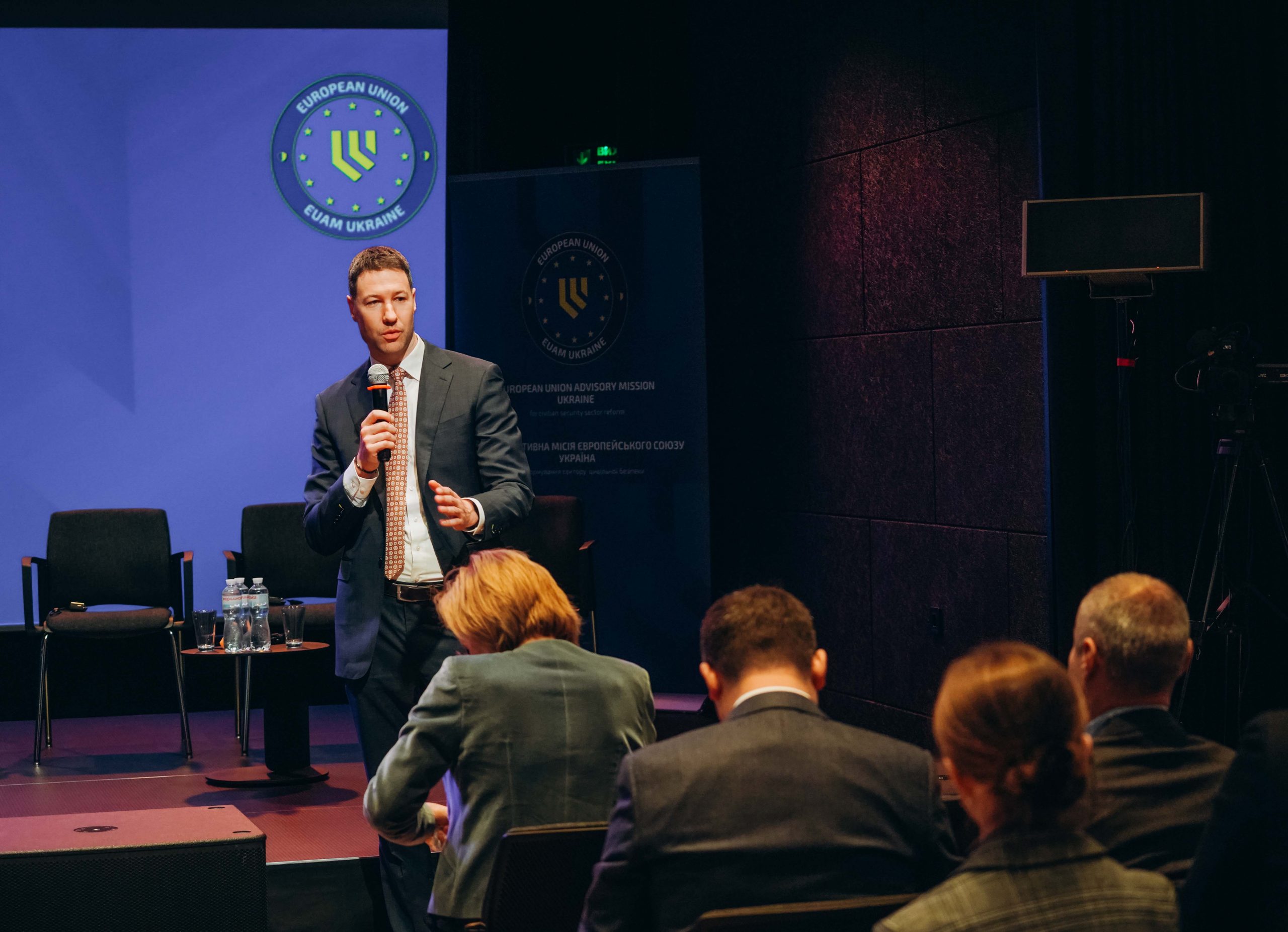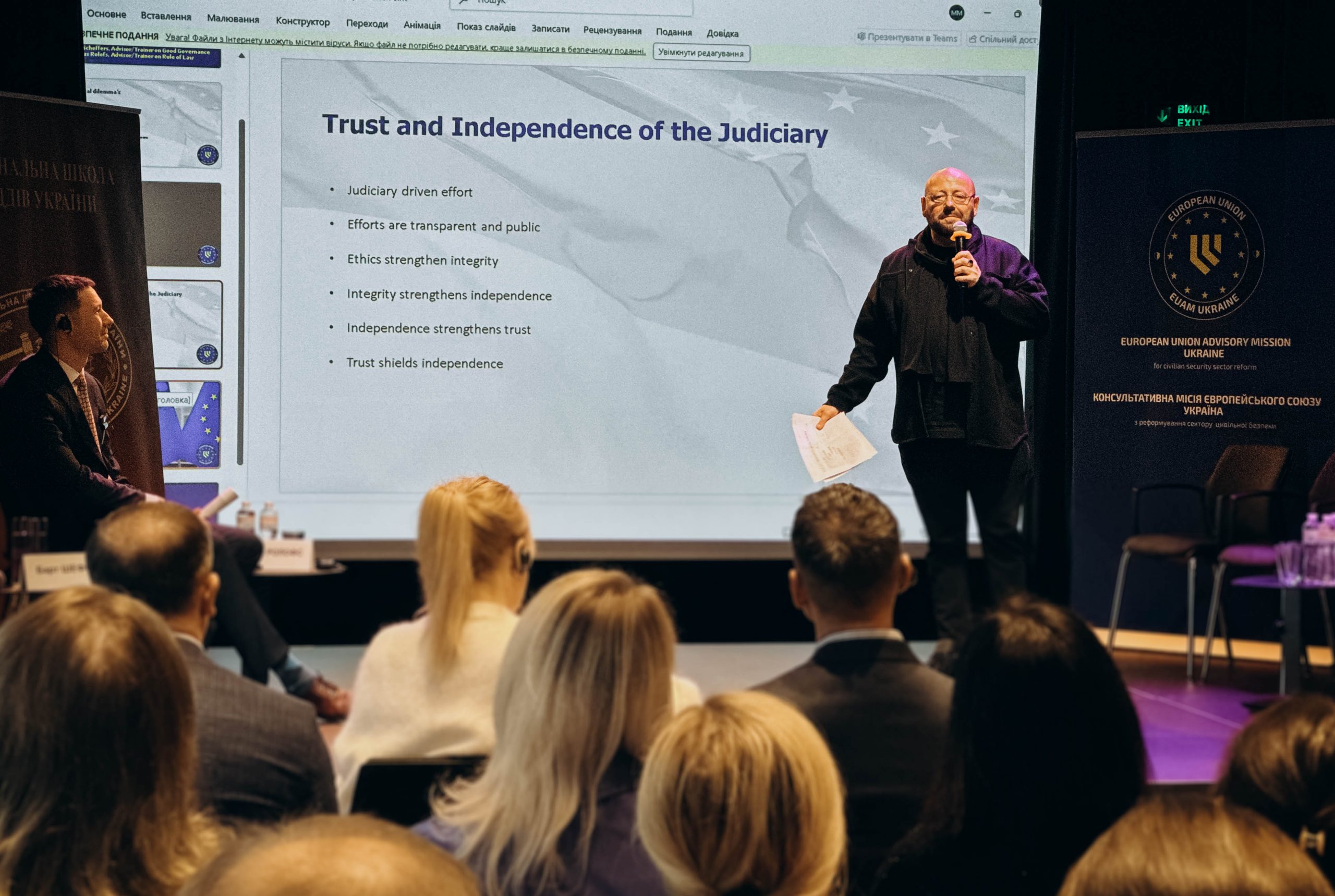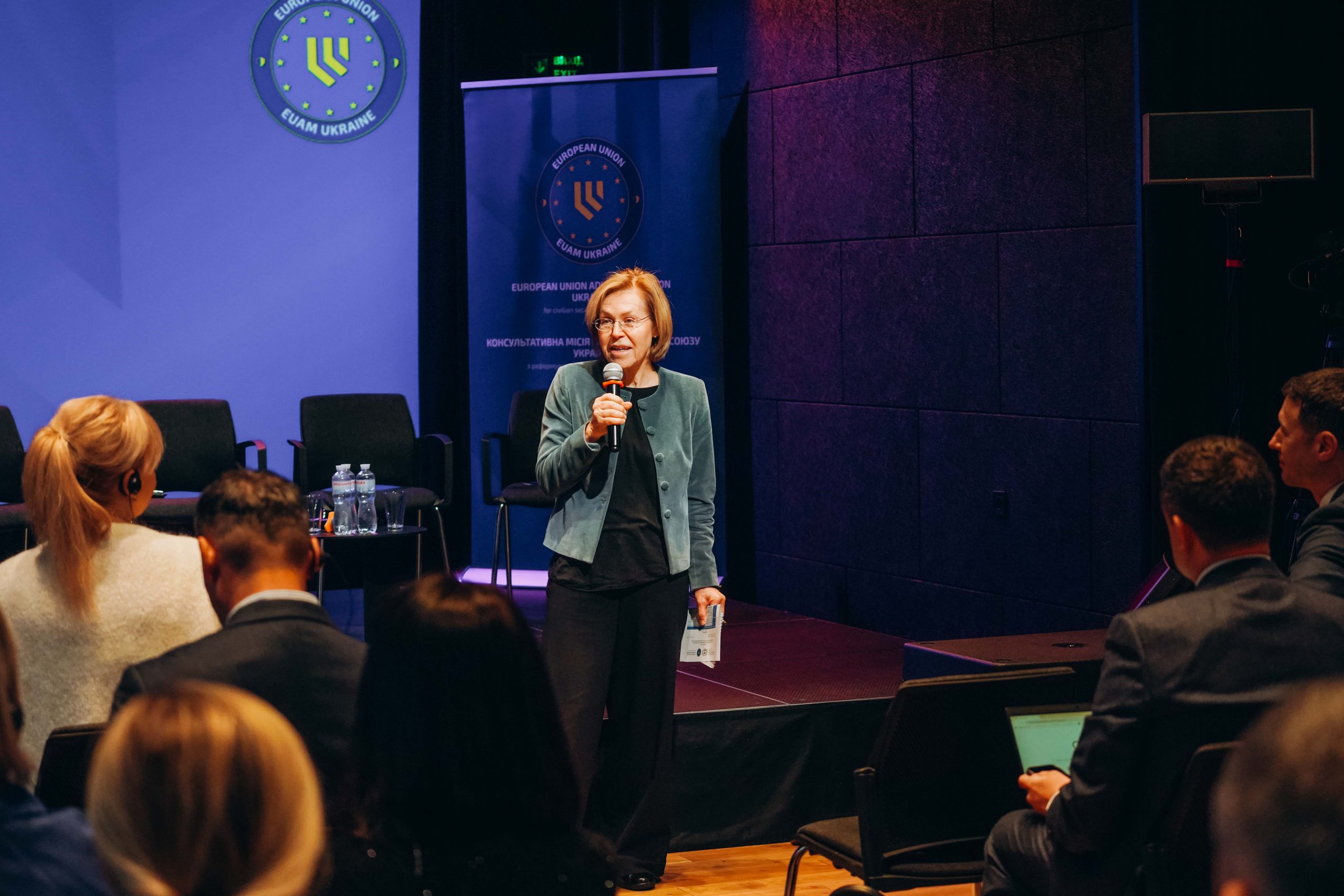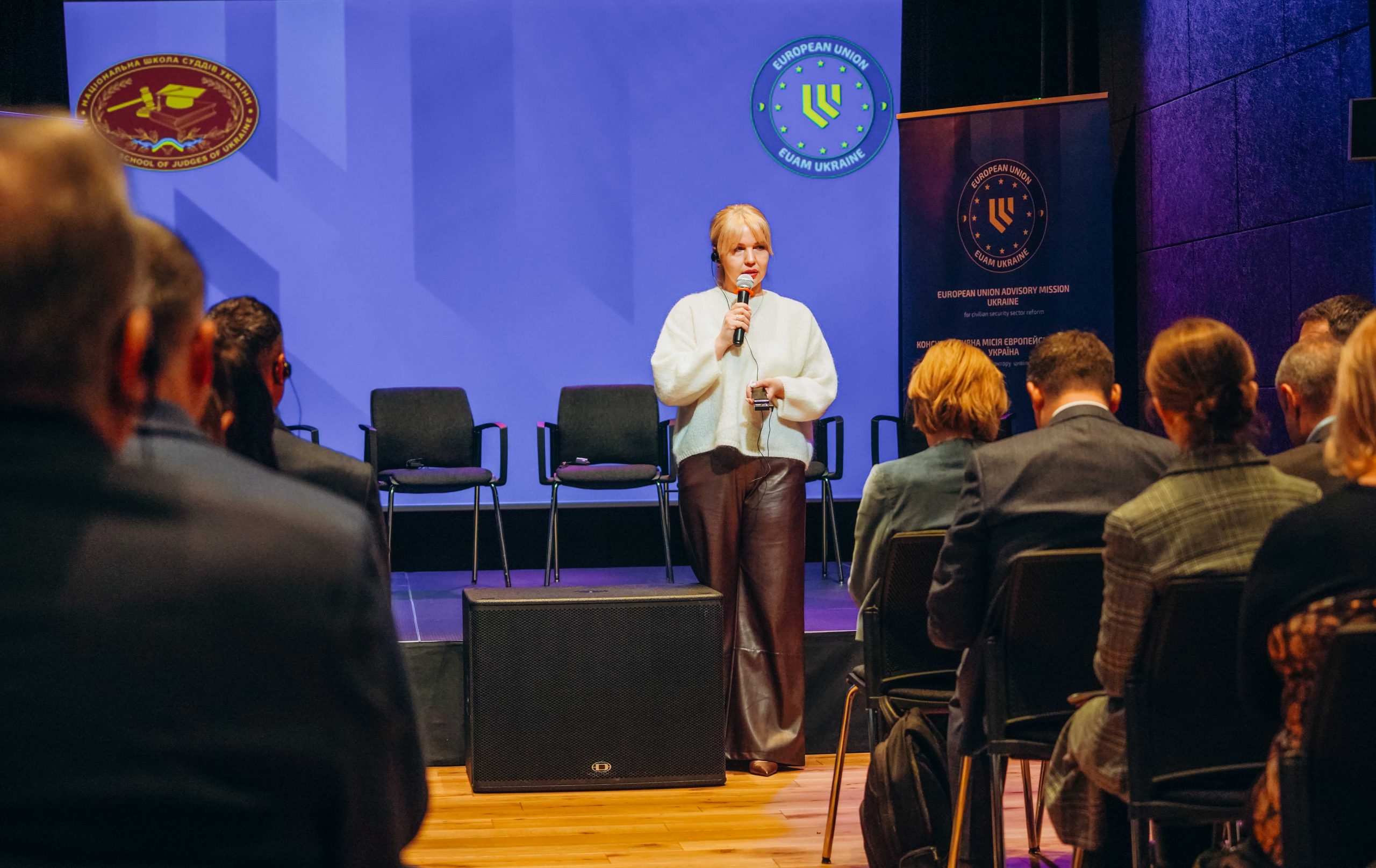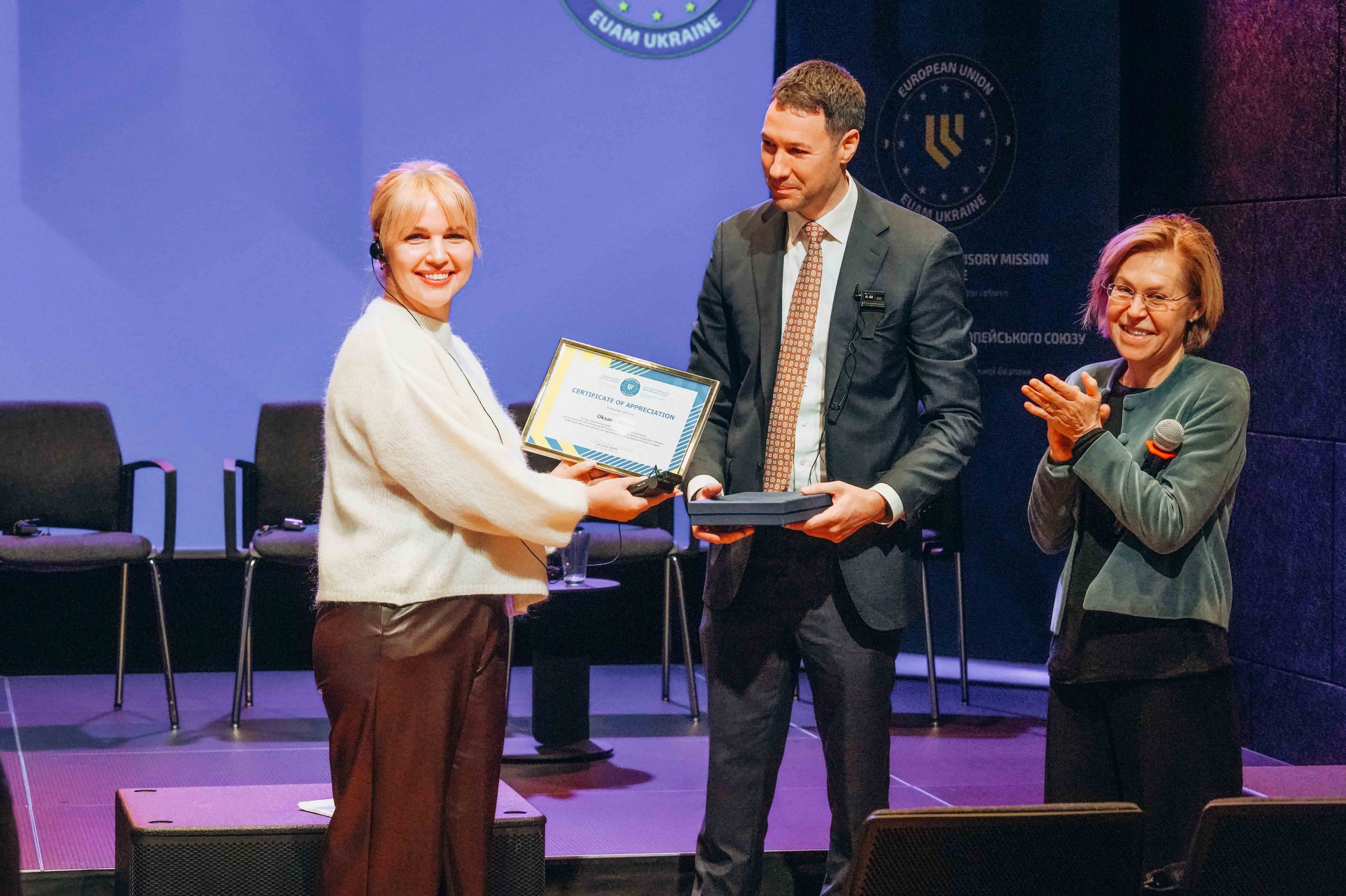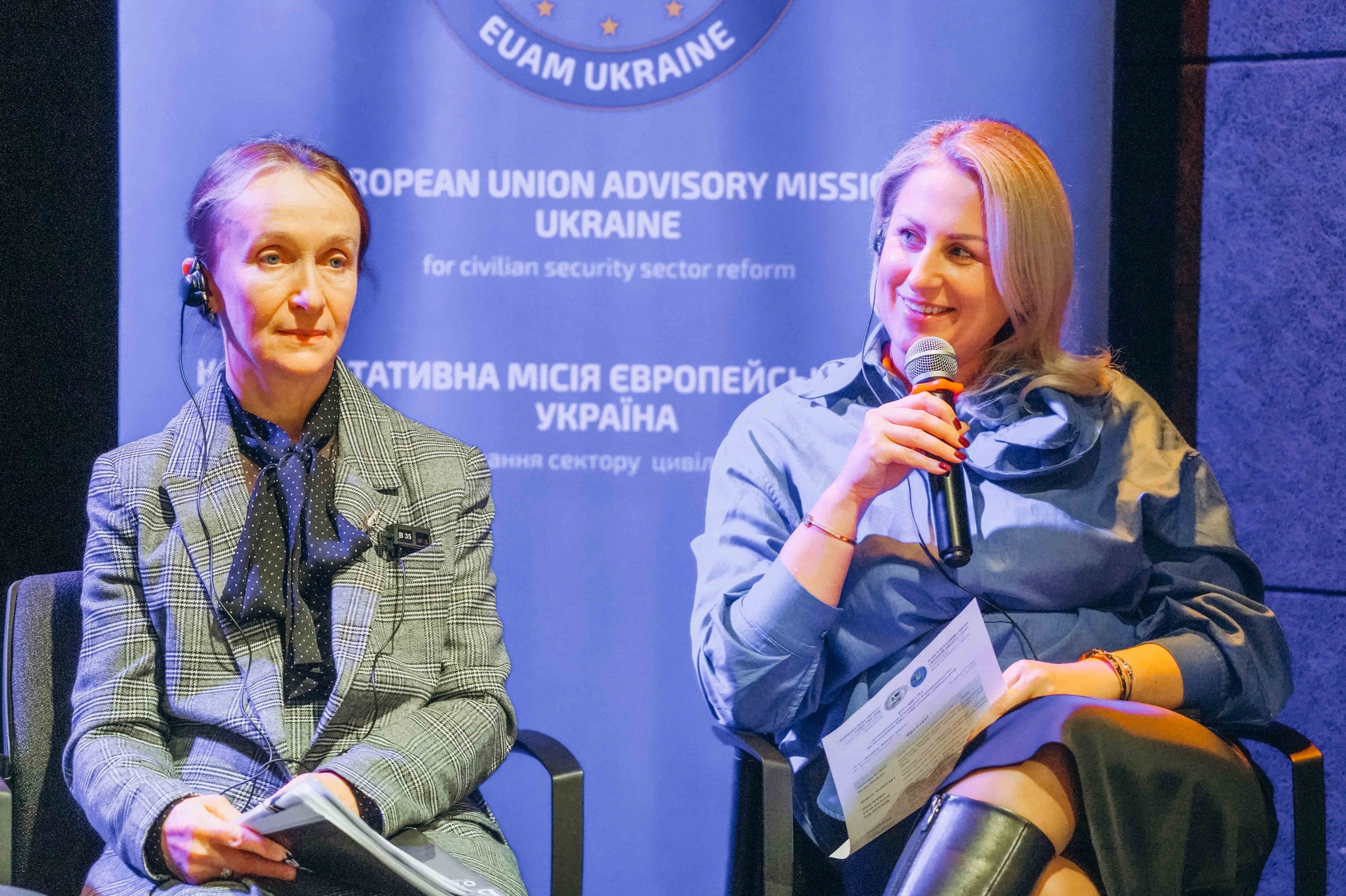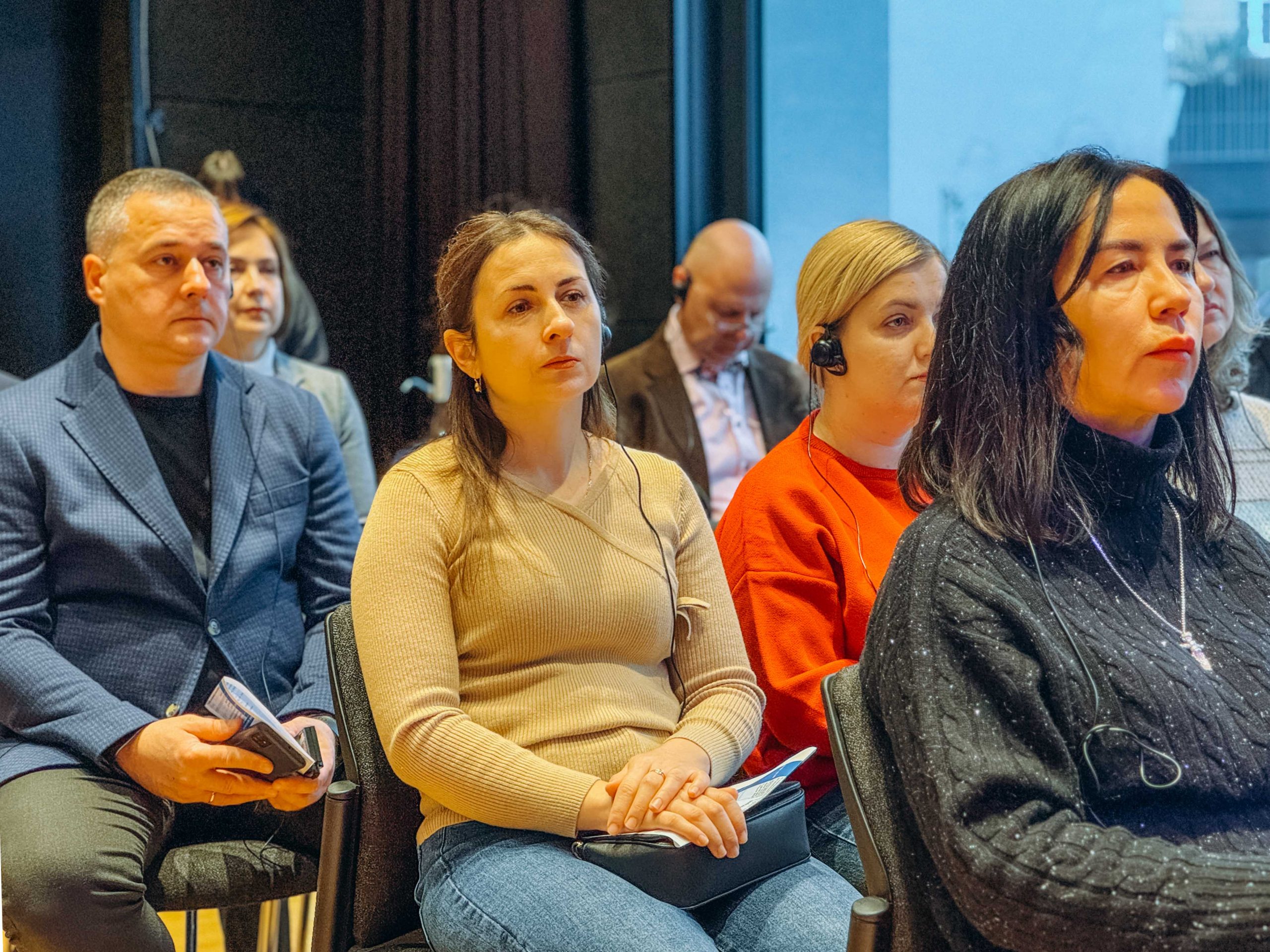Commemorating Anti-Corruption Day: EUAM and NSJ Highlight Managing Ethical Dilemmas to Advance Judicial Integrity
December 12, 2024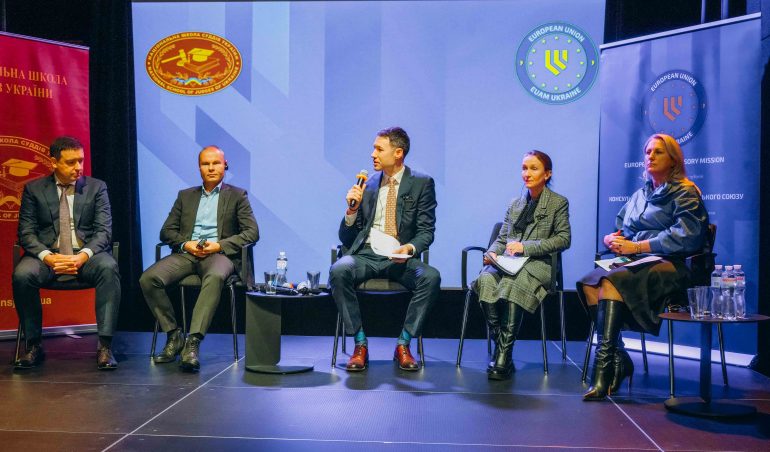
On International Anti-Corruption Day, the European Union Advisory Mission (EUAM), in collaboration with the National School of Judges (NSJ), celebrated the judiciary’s crucial role in upholding integrity and addressing ethical dilemmas effectively to ensure fair trials and justice free from conflict of interest, bias, or undue influence. The gathering focused on the pivotal role judges play in promoting integrity, addressing ethical dilemmas, and advancing public trust.
A key highlight of the event was the discussion surrounding the ongoing efforts to strengthen judicial independence and transparency in Ukraine, particularly through the recent adoption of the amended Code of Judicial Ethics. Rather than focusing solely on the Code itself, the discussions emphasised the broader importance of ethical judicial practices and the spirit of the Code. This ongoing development reflects a growing understanding of the significance of ethical standards in maintaining accountability and fairness. It is a positive sign that Ukraine’s judiciary is increasingly aligning with international best practices.
“The updated version of the Code of Judicial Ethics is an important step in ensuring transparency of the judiciary and public trust in justice. The document emphasises higher standards of judicial behaviour which serve as a foundation to combat corruption,” said Yehor Krasnov, Judge of the Supreme Court. “Consolidating ethical standards will promote accountability, independence and fairness. This Code also highlights the responsibility of judges in their professional and extrajudicial activities. The mainstreaming of the Code signifies that judges understand the importance of high standards of justice and their compliance with international best practices.”
Bart Scheffers, EUAM Trainer and Adviser on Good Governance, reflected on the achievements made in collaboration with the NSJ over the past seven months. He noted the success of several workshops and training sessions, which benefited over 100 judges and focused on managing ethical dilemmas, fostering judicial ethics, and building a culture of integrity. According to Scheffers, these efforts aimed to help judges sustain public trust amidst growing public scrutiny, the influence of social media, societal perceptions, and undue interference.
“The Code of Judicial Ethics is an important tool in helping judges navigate these challenges, ensuring transparency, accountability, and fairness within the justice system,” Scheffers remarked. He added that integrating judicial ethics into broader training curricula and continuing legal reforms would be vital for strengthening the judiciary’s role in safeguarding public sector integrity.
Scheffers praised the commitment of the judges involved, despite significant challenges such as judicial vacancies, heavy caseloads, strained administrative resources due to the war, and the destruction of courthouses.
“The dedication I witnessed over these months is commendable and worth recognising. This progress is a moment to celebrate and cherish—a clear sign that Ukraine’s judiciary is on the right path towards meeting international standards and securing public trust,” he concluded.
The event brought together representatives from the judiciary, EUAM, civil society organizations, media, and international experts to share experiences, discuss best practices, and celebrate the progress made in strengthening Ukraine’s legal system.


